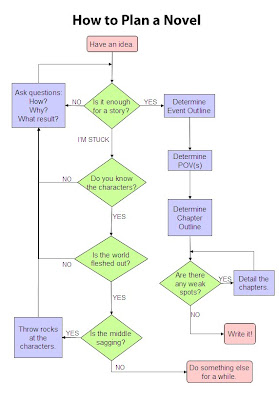** Disclaimer #2: There is no such thing as a consensus. Nobody ever agrees on anything.*** Quite the opposite in fact, as you'll see. All I can do is take what people think and decide to what extent I agree. Now onto the post.
*** Unless it's something stupid, like when I spelled a name "Lushita" and "Lusheeta" in the same paragraph. I think everybody caught that one :-P
The beta phase is over,* and the results are in!** After spending a day or two with the betas' comments and my own thoughts, here are some of the bigger problems I came away with:
- Hagai's motivation to keep chasing the stone could be stronger.
- Dorsey's motivation to stay at home, while Hagai joins Sam's crew, is pretty flat. (For those who aren't beta readers, Dorsey is Hagai's best friend.)
- Hagai is a little too whiny at times.
- The first 'Sam flashback' chapter is a bit jarring.
- Something's wrong with the 'Sam in the Navy' chapter.
The betas had mixed feelings about this. Strong mixed feelings in fact, and it's caused me no end of grief. Some people love the two stories, the way each informs the other, the way it never gave them opportunity to get bored. Some people hate them, getting annoyed each time the story "stopped" to talk about Sam some more.
You know what the worst part is? They're all right.
But it's helped me realize, even more clearly, that I can't please everybody. In the end, I have to decide what I want.
So Sam's story is staying, but I'm thinking of ways to make it tighter, more interesting, and also to clue the reader in early on that Air Pirates is not just about Hagai. I've already made plans to do major rewrites of 3 Sam chapters, and minor changes to 5 others. This is in addition to a massive reworking of the first 4-8 Hagai chapters.
So it might take a while, and I don't even know if it will work, but it will be better. In the end, that's all I can do.
Now, to figure out what's wrong with that Sam-in-the-Navy chapter...


